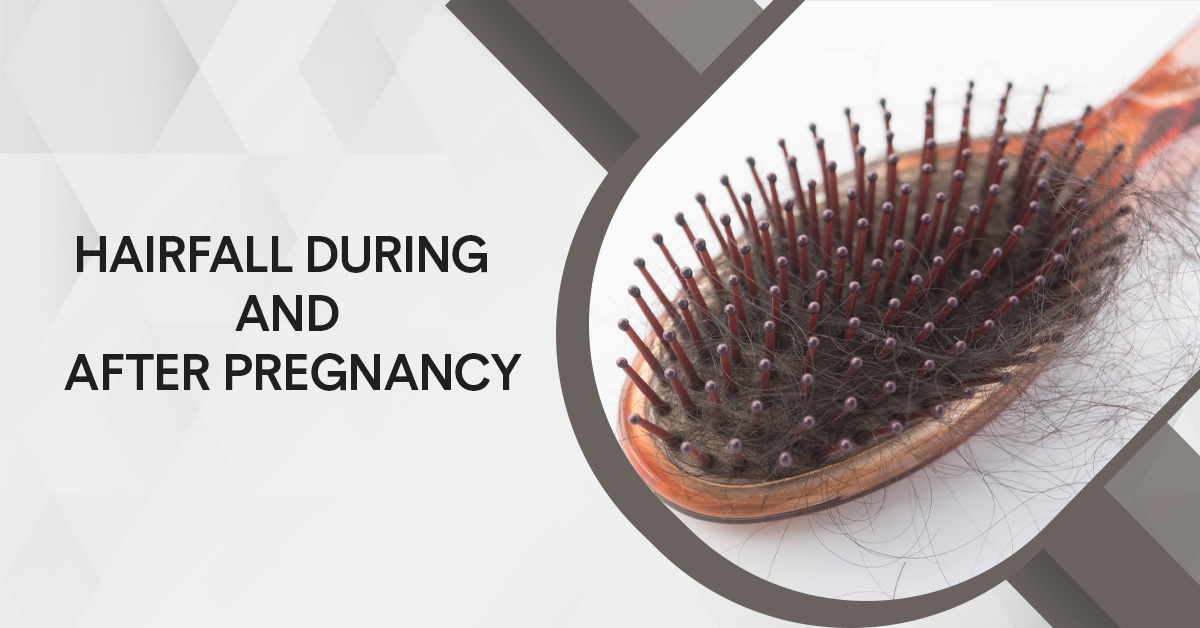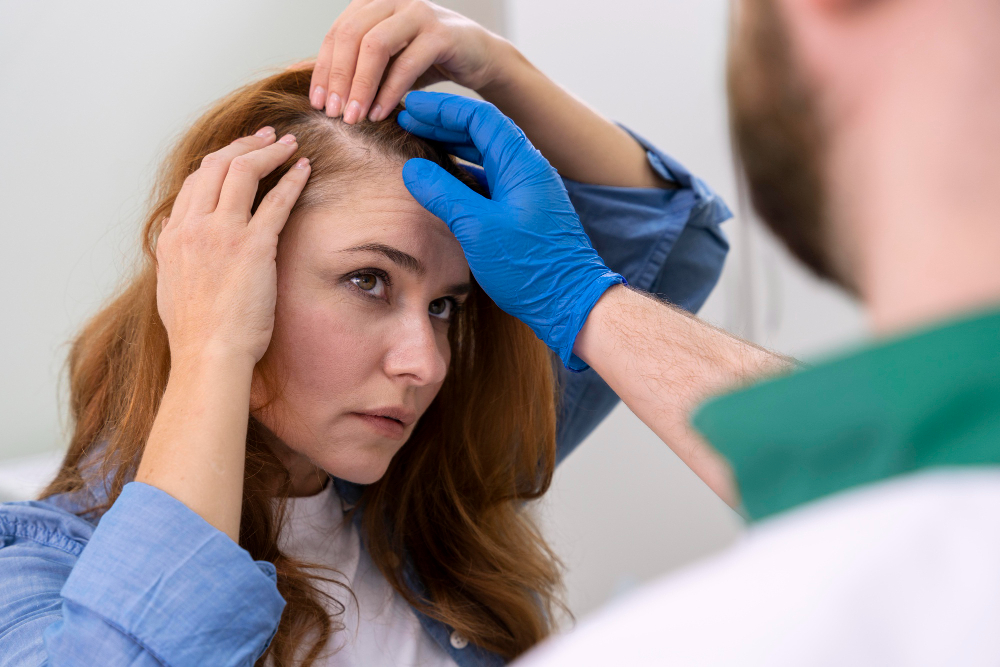
Hair is one of those human features that naturally make them look beautiful. It is a normal belief that during pregnancy women’s hair becomes long and lustrous. But as every coin has two sides, so does pregnancy. Every woman goes through hormonal changes during this phase of nine months causing alternations in the normal way of living.
The effect that hormonal changes have on the body of a pregnant woman varies for everyone. Some may experience a positive change in their hair growth while others may face hair fall and breakage. Both the situations are normal and temporary as once the baby gets delivered; you are most likely to get back to your normal self.
While the reduction in hair shedding may be a result of an increase in estrogen levels, hair fall can be a result of hormonal changes, stress, or medical reasons that arise during pregnancy. There is nothing to worry about as the right treatment and healthy living can help with it.
Men and women normally lose 50 to 100 strands of hair every day but with the rise in estrogen levels during pregnancy, the natural hair follicle cycle slows down. As a result, some pregnant women are likely to face fewer hair falls. However, every pregnancy is unique and there may be cases where women face excessive hair fall.
Telogen Effluvium is a condition that refers to hair thinning caused as a result of hair shedding because of shock or body stress. During the first trimester of pregnancy, the body goes through a high level of stress as a result of a huge shift in hormonal balance. This condition affects only a small number of pregnant women.
The hormonal changes take place as the body prepares itself for the baby growing inside. The stress may be put on hair causing thrice more than the normal hair fall. This change might not take place suddenly and might come into notice only after a few months. This hair loss normally doesn’t last more than six months and is not at all permanent.
In some pregnant women, health issues arise at the time of pregnancy that becomes the underlying reason for hair fall. Hyperthyroidism and hypothyroidism are two thyroid conditions out of which hypothyroidism is common. Apart from muscle cramps, exhaustion, and constipation, hair fall is yet another symptom. In some cases, thyroid issues are found even after delivery.
The other reason that might lead to hair thinning is the deficiency of iron leading to insufficient red blood cells that carry oxygen to different parts of the body. Pregnant women are at a high risk of anemia especially if they are carrying multiples, have close pregnancies, or aren’t taking a proper diet.
In pregnancy, proper intake of nutrients is essential as your needs increase with the baby growing inside you. Deficiency of nutrients can lead to an undernourished body which might cause dry skin, hair fall, and other problems.
Not only during pregnancy but hair fall may also occur after pregnancy. Some women face excessive hair fall after delivery. Various reasons may cause postpartum hair loss. Let’s read about what these are!
It is believed that long and lustrous hair grown during pregnancy is likely to fall once the delivery happens. The changes in hormones and the increase and decrease in estrogen levels cause hair fall. As discussed earlier, hair fall caused as a result of changes in estrogen level is normally termed telogen effluvium. This situation resolves by itself as soon as the hormone level gets back to normal.
The reason might be an underlying health condition, for example, if you have continued thyroid even after pregnancy then it may be one of the reasons. Normally, the thyroid that occurs during pregnancy resolves once the baby is delivered but, in some cases, it might continue.
Postpartum care is important as the body of women needs extra care to recover well. Delivery stress, new responsibilities, and continuous feeding can make things hard for a woman both physically and emotionally. Any compromise in postpartum diet can act as a loophole leading to an adverse effect on health. Weakness, body ache, delayed recovery, hair fall, etc. may be some of the symptoms.
Whether you are pregnant or not, you may still face hair fall and it may be possible that your hair fall has nothing to do with pregnancy. If you have been observing bald patches during or after pregnancy then it may be due to genetic or autoimmune conditions.
It is also possible that your hair loss has nothing to do with pregnancy or genetic disorders. It may simply be a result of the rough handling of hair by you. Inflammation of hair follicles may also lead to thinning of hair.
The hair fall that happens during pregnancy needs no special treatment as if they are due to hormonal changes. As soon as the hormone level gets back to normal, the hair fall reduces and your hair will become as usual.

If the hair fall occurs due to thyroid then proper medication and doctor consultation can help you resolve it. If the reason is iron or any other nutrient deficiency, it may be fixed by adding proper nutrients to your diet and eating healthy food.
The best way to treat hair fall is to prevent it in the first place whether it is during or after pregnancy. A wholesome diet is vital for all pregnant ladies which comprises iron, protein, calcium, fiber, and all necessary vitamins and minerals. Drinking adequate water is a must as it helps in better blood circulation and keeps your body hydrated.
Avoid any supplements that have side effects or may lead to hair loss. Try not to tie your hair tightly as it might damage them and can increase hair fall. Do not twist, pull, or rub them unnecessarily; wash them with utmost care and use a comb with a wide tooth.
Even if you are facing hair fall, do not panic as you are most likely to gain them back within a few months after delivery. It is just a temporary situation; all you need to do is eat healthily, take care of yourself and stay happy as your little one is on his way!